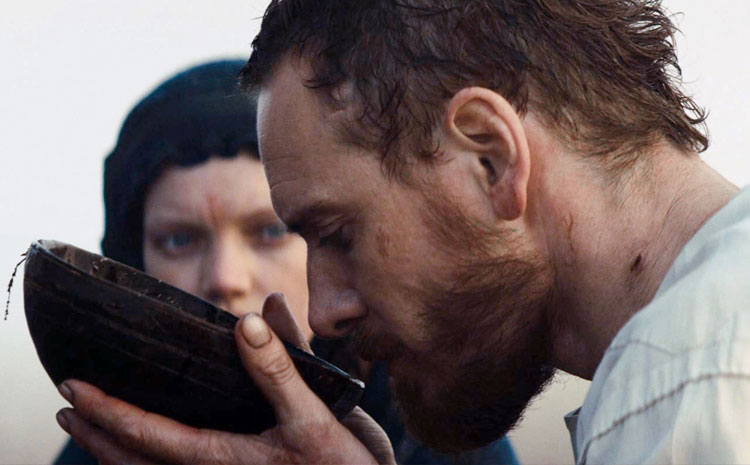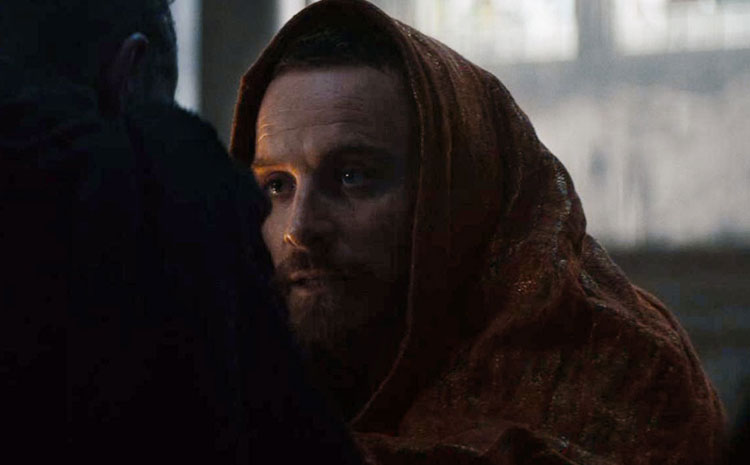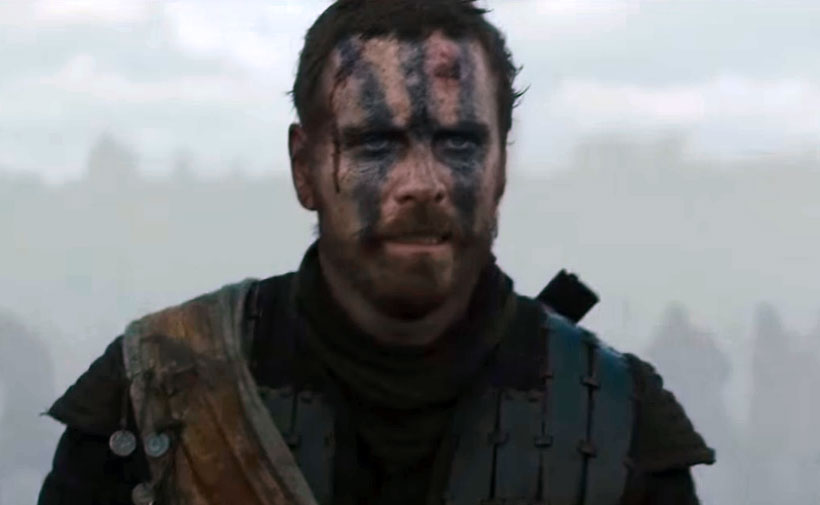
|

|

|

|

|

|

|

|

|

|

|

|


STEVE INSKEEP, HOST:
Shakespeare's "Macbeth" begins with the appearance of three witches amid thunder and lightning. That's the start of a tragedy of a military hero turned murderous tyrant. The latest actor to take on the character of Macbeth is Michael Fassbender. He specializes in complex characters like a slave owner, a sex addict, a cult music icon named Frank who wears a huge papier-mache head, for example. Fassbender joined our colleague, Renee Montagne, to talk about his newest movie.
RENEE MONTAGNE, BYLINE: Here's the thing to remember about the play "Macbeth." It is considered to be cursed. It is so connected with the dark side and the possibility of bad luck, that in the theater, no one dares say its name. Instead, they call it "The Scottish Play."
MICHAEL FASSBENDER: I know that certainly when I was in drama school, I remember my teacher looked at me with this thunderous look and he looked like he was going to take my head off when I said "Macbeth." He was like "The Scottish Play." So it's definitely - I don't know why it's there, but it's definitely there.
MONTAGNE: So far so good with you, though, on this one (laughter).
FASSBENDER: (Laughter) Yeah, we'll see.
MONTAGNE: It's not a...
FASSBENDER: I'm touching wood. I'm touching wood.
MONTAGNE: (Laughter). Michael Fassbender, as you can hear, is fearless when it comes to "Macbeth," as are the filmmakers who shift scenes and traditional characters to create, among other things, motives. Sure, Lord and Lady Macbeth cook up the killing of King Duncan so he can wear the crown, but this movie version layers on other traumas. It opens with a heretofore nonexistent scene of a dead young child being mourned by the Macbeths. Then, onto a battle scene that is a slow motion slaughter.
FASSBENDER: We were observing this character who was sort of unraveling internally. You know, Shakespeare has it in the text that Lady Macbeth says please don't be alarmed. You know, we've seen these fits of hallucinations before. So we know that before we meet him in the play, he's already somebody who is mentally unstable and suffering from some form of unpredictable behavior. And we took that to be post-traumatic stress disorder. So that was - for me, it was a massive insight into how I was going to play him. You know, what's pretty amazing is that Shakespeare had that insight back then when it's only even today that we have a name for it.
(SOUNDBITE OF FILM, "MACBETH")
FASSBENDER: (As Macbeth) Now over the one-half world nature seems dead and wicked dreams abuse the curtained sleep. Witchcraft celebrates and withered murder moves like a ghost.
MONTAGNE: The main characters are all there, including Banquo, Macbeth's lieutenant closest friend and biggest threat. And the witches do show up, not though as the traditional screeching crones but as weird sisters, staring and nearly silent, who seem to have emerged from the very earth.
They're not like the women sitting around a pot saying - what is it - double, double, toil and trouble (laughter) with...

FASSBENDER: That's it. Exactly. And we - you know, it's a fine line with the witches not to have them stumble into just complete ridiculousness. The approach, certainly for me, with the witches was the idea that they mightn't even exist, that they're part of his sort of trauma. But also what was very interesting - to get back to the post-traumatic stress disorder element of it - having sat down with soldiers, what really became apparent was the absolute crime of killing Banquo. How that's the worst thing you can do as a soldier is kill one of your brothers in arms and how that really pushes him over the edge.
MONTAGNE: The soldiers you spoke to, where did they fight and what did they tell you?
FASSBENDER: Well, it was Afghanistan and Iraq. And, you know, just the fact that they could be going down the street here in London and next thing, they're in Basra. And the violent rages towards their partners, the lack of sleep, some of them getting into bed and they keep thinking that there's sand in the bed - very sort of physical things that you bring back with you, residue that lives with you in a totally different environment.
MONTAGNE: You know, you can't always speak to people involved in the worlds that you're playing in. I'm thinking of the movie "12 Years A Slave." You played the slave owner, Epps, who did terrible things. And yet you somehow, without knowing why, somehow understood him. So is it important for you to devise, at least for yourself, what's going on with your characters?
FASSBENDER: Absolutely. You know, I think with somebody like Epps, you don't distance the characters that are so unsavory. You try and make them tangible for audiences because then it becomes everybody's problem, as opposed to, well, that guy was a total pantomime villain. And if you're playing him like a psychopath, then he's so far removed from anything that they could sort of identify with, that it's very easy for the audience to dismiss him as opposed to deal with him as a human being.
MONTAGNE: You know, so far, none of your characters are outright funny. I mean, you don't have a lot of opportunity to laugh.
FASSBENDER: (Laughter) You haven't seen "Frank."
MONTAGNE: (Laughter) I haven't. I'm sorry. That's right.

FASSBENDER: OK (laughter).
MONTAGNE: Well, to circle back to "Macbeth," though, you use smile very carefully. There's one moment when you have blood on your hands from killing the king. And then you are speaking to his son and a tiny smile comes out.
FASSBENDER: Well, yeah, it was - you know, we discussed, you know, what was he like pre to that killing of Duncan? And he's sort of riddled with responsibility and overwhelmed by the concept of killing the king. But through the killing of Duncan, he finds clarity and peace because he is so familiar with brutality and killing. I looked at it like an alcoholic sitting down with a bottle of whiskey. Three or four glasses in, he feels in a familiar place. And even though that place is killing him, it's something that he feels comfortable in because it's something that he knows.
INSKEEP: We've been listening to Renee Montagne talking with actor Michael Fassbender who stars in the new movie, "Macbeth," which opens tomorrow.
